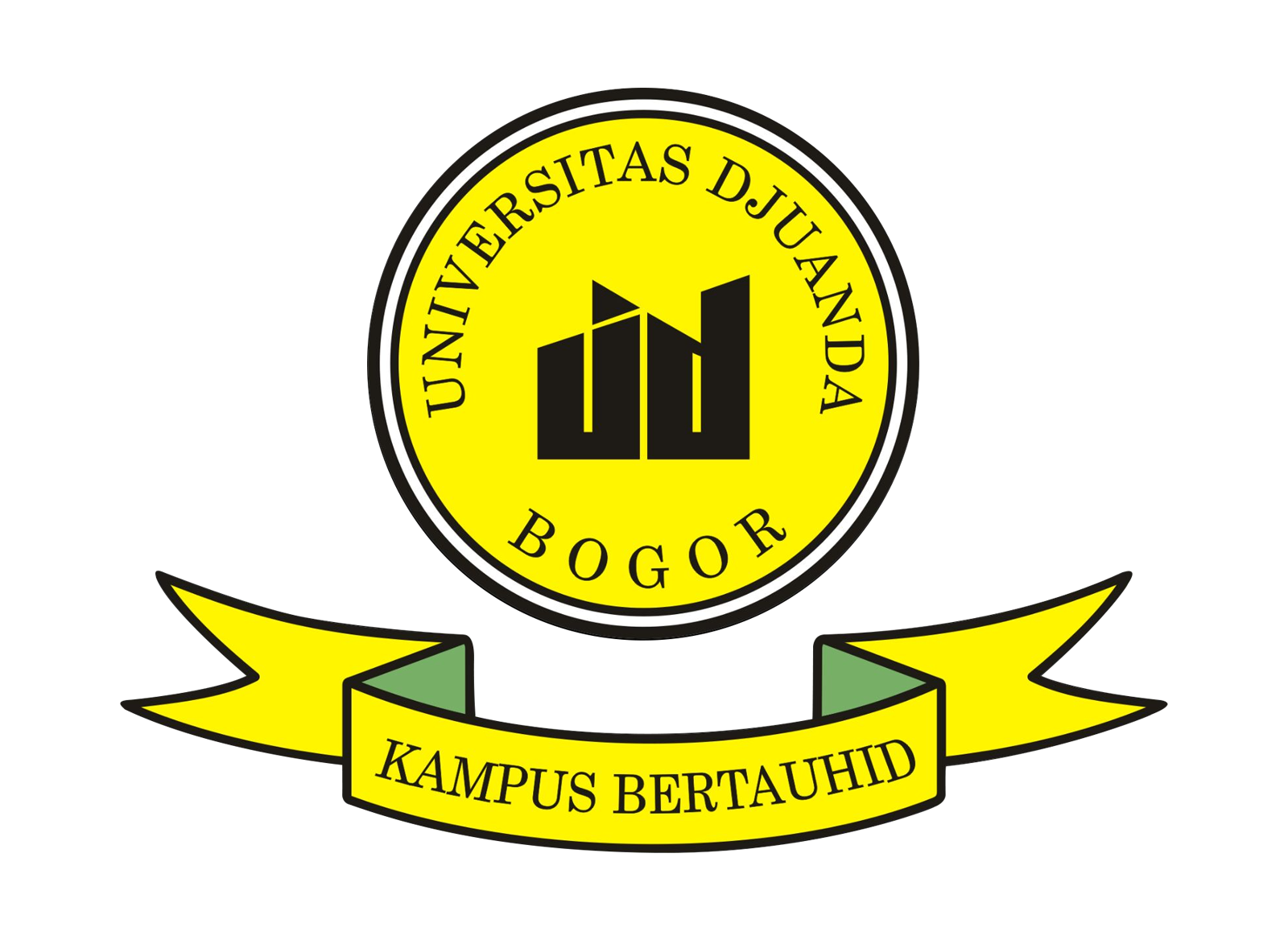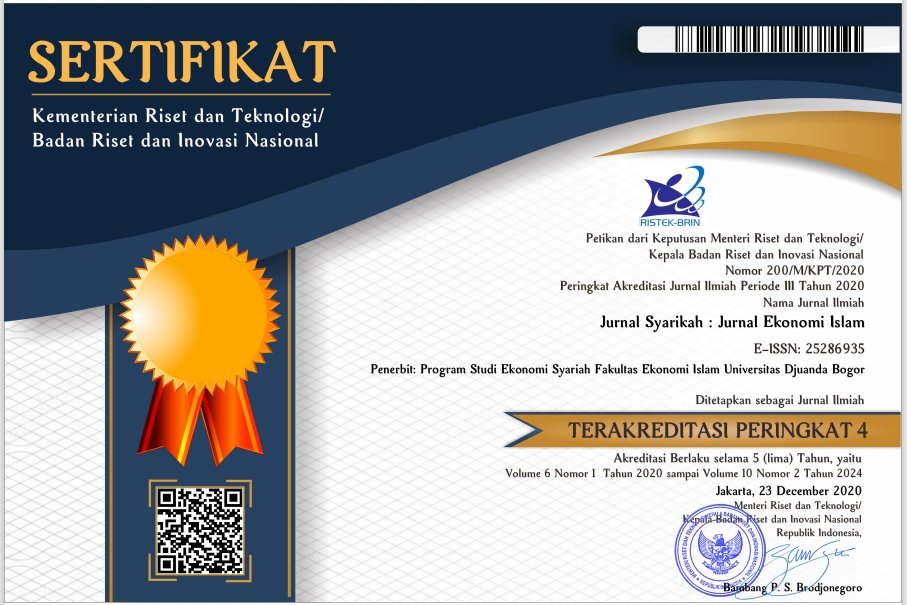ECONOMIC JUSTICE AND THE SPIRIT OF ISLAMIC ECONOMICS: A REVIEW OF JOSEPH E. STIGLITZ AND MUHAMMAD YUNUS’ THOUGHTS ON ECONOMIC AND LAW
DOI:
https://doi.org/10.30997/jsei.v8i1.5549Keywords:
Economic Law Politics, Economic Equality, Humanity, Equilibrium, Economic JusticeAbstract
This paper aims to analyze the political discourse of economic law in the era of globalization in developing countries from the perspective of Joseph E. Stiglitz and Muhammad Yunus. The globalization has affected various sectors of people's lives, including the pattern of free markets that occur for all lower-middle-income countries, instead destroys them. Many economists who pay attention to this issue, include Joseph E. Stiglitz and Muhammad Yunus who have greatly influenced the global world regarding economic development. This qualitative research uses a comparative approach, and secondary data such as journal articles, books, and reports. Data were collected through documentation techniques and analyzed using interactive model analysis. The result indicates that the discourses of thought between Joseph E. Stiglitz and Muhammad Yunus about the politics of economic law have similarities and differences. The two economists agree that economics, law, and humanity have a very close connection. They recommended that efforts to reform mondial policies be carried out based on participation, equality, independence, justice and democracy. In addition, the effects of globalization in the economic sector need to be regulated fairly. Thus, their thoughts are in line to the basic principles of Islamic economics: principles of equilibrium and justice.
References
Adika, G. (2020). Economic growth dynamics between resource-rich and resource-poor countries in sub-Saharan Africa: The role of politics and institutions. African Development Review, 32(3), 303–315. https://doi.org/10.1111/1467-8268.12440
Armour, J., & Lele, P. (2009). Law, finance, and politics: The case of India. Law and Society Review, 43(3), 491–526. https://doi.org/10.1111/j.1540-5893.2009.00380.x
Besar, M. H. A. H. (2019). Profitability vs Poverty alleviation: has banking logic influences Islamic microfinance institutions? Asian Journal of Accounting Research, 4(2), 260–279. https://doi.org/10.1108/AJAR-05-2019-0039
Bryman, A. (2012). Social Research Methods (4th ed.). Oxford University Press.
Chabibi, M. (2019). Pertaruhan Politik Negara atas Mekanisme Pasar (Studi Analisis Ekonomi Politik Menurut John Rawls). Indonesian Interdisciplinary Journal of Sharia Economics, 1(2).
Farhan, I. (2018). Respon Agama Terhadap Persoalan Sosial-Ekonomi: Studi Pemikiran Tokoh Muslim Muhammad Yunus Di Bangladesh. Jurnal Yaqzhan: Analisis Filsafat, Agama Dan Kemanusiaan, 4(2), 293–308. https://doi.org/10.24235/jy.v4i2.3549
Hasan, M. I. (2002). Pokok-Pokok Materi Metodologi Penelitian dan Aplikasinya. Ghalia.
Hu, J. (2019). Analysis of the innovation and development of the socialist market economy theory. China Political Economy, 2(1), 85–97. https://doi.org/10.1108/cpe-04-2019-0006
I, S. (2012). Philosophy and Principles of Islamic Economic System. International Seminar on “New Economic Crisis and Islamic Perspective.”
Kennedy, D. (2013). Law and the political economy of the world. Leiden Journal of International Law, 26(1), 7–48. https://doi.org/10.1017/S0922156512000635
Kusno, F. (2020). Krisis Politik Ekonomi Global Dampak Pandemi Covid-19. Anterior Jurnal, 19(2), 94–102. https://doi.org/10.33084/anterior.v19i2.1495
Lawrence, R. Z. (2007). A True Development Round? A Review of Joseph E. Stiglitz and Andrew Charlton’s “Fair Trade for All: How Trade Can Promote Development.” Journal of Economic Literature, 45(4), 1001–1010. http://www.jstor.org/stable/27646890
M.D, M. M. (2006). Membangun Politik Hukum, Menegakkan Konstitusi. LP3ES.
Mabrouk, M. B. R. (2016). The paradox of thrift in an inegalitarian neoclassical economy. Business and Economic Horizons, 12(3), 75–93. https://doi.org/10.15208/beh.2016.07
Mauerhofer, V. (2019). An introduction and overview on law, politics and governance: Institutions, organizations and procedures for Ecological Economics. Ecological Economics, 165(March), 106396. https://doi.org/10.1016/j.ecolecon.2019.106396
Mayasari, M. D. (2019). Transformasi Pandangan Perdagangan Internasional Amerika Serikat di Era Globalisasi. Dauliyah, 4(2). https://doi.org/http://dx.doi.org/10.21111/dauliyah.v4i2.3304
Miles, M. B., & Huberman, A. M. (1994). Qualitatice Data Analysis (2nd Editio). Sage Publications.
Muhammad Yunus: Facts. (n.d.). Retrieved February 7, 2022, from https://www.nobelprize.org/prizes/peace/2006/yunus/facts/
Muhammad Yunus Biographical. (n.d.). Retrieved June 30, 2021, from https://www.nobelprize.org/prizes/peace/2006/yunus/biographical/
Pennings, P., Keman, H., & Kleinnijenhuis, J. (2006). Doing Research in Political Science. Sage Publications.
Pratama, T. G. W. (2018). The role of law politics on creating good governance and clean governance for a free-corruption Indonesia in 2030. The Social Sciences, 13(8), 1307–1311. https://doi.org/10.36478/sscience.2018.1307.1311
Rafsanjani, H. (2017). Studi Kritis Pemikiran Muhammad Yunus Tentang Grameen Bank. Jurnal Masharif Al-Syariah: Jurnal Ekonomi Dan Perbankan Syariah, 2(1), 14.
Rahardjo, S. (1991). Ilmu Hukum. Citra Aditya Bakti.
Ristyantoro, R. (2017). Mungkinkah Mengentaskan Kemiskinan Melalui Pemikiran Ekonomi Bisnis Sosial Muhammad Yunus. Respons, 22(1), 111–130.
Rizky, L. (2015). Bisnis Sosial: Sintesis Muhammad Yunus untuk Menggerakkan Kapitalisme di Bangladesh. Jurnal Hubungan Internasional, 4(1), 23–34. https://doi.org/10.18196/hi.2015.0063.23-34
Sasmita, S. (2015). Reformasi Struktur Perdagangan Internasional Dalam Wto: Perspektif Joseph E.Stiglitz. Jurnal Hubungan Internasional, 4(2), 192–203. https://doi.org/10.18196/hi.2015.0079.192-203
Snowdon, B. (2013). Joseph Stiglitz. Conversations on Growth, Stability and Trade, XI(10), 24–27. https://doi.org/10.4337/9781843767428.00022
Stiglitz, J. E. (1994). Wheither Socialism. Massachusetts Institute of Technology.
Stiglitz, J. E. (1996). Whither Socialism? The MIT Press.
Stiglitz, J. E. (2002). Globalization and its Discontents. W.W.Norton.
Stiglitz, J. E. (2007). Making Globalization Work. W.W.Norton.
Stiglitz, J. E. (2012). The Price of Inequality. W.W.Norton.
Stiglitz, J. E. (2019). People, Power, and Profits: Progressive Capitalism for an Age of Discontent. W.W.Norton.
Yunus, M. (2007). Banker To The Poor Micro-Lending and the Battle Against World Poverty. Public Affairs.
Yunus, M. (2017). A World of Three Zeroes The New Economics of Zero Poverty, Zero Unemployment, and Zero Carbon Emissions. Public Affair TM.
Yunus, M., & Jolis, A. (2003). Banker To The Poor: The Story Of The Grameen Bank. Aurum Press.
Yunus, M., & Weber, K. (2007). Creating a World Without Poverty: Social Business and the Future of Capitalism. Public Affair TM.
Downloads
Published
How to Cite
Issue
Section
License
Copyright (c) 2022 JURNAL SYARIKAH : JURNAL EKONOMI ISLAM

This work is licensed under a Creative Commons Attribution-ShareAlike 4.0 International License.
Authors who publish with Jurnal Syarikah: Jurnal Ekonomi Islam agree to the following terms:
- Authors retain copyright and grant the journal right of first publication with the work simultaneously licensed under a Creative Commons Attribution 4.0 International License that allows others to share the work with an acknowledgement of the work's authorship and initial publication in Jurnal Syarikah: Jurnal Ekonomi Islam.
- Authors are able to enter into separate, additional contractual arrangements for the non-exclusive distribution of the journal's published version of the work (e.g., post it to an institutional repository or publish it in a book), with an acknowledgement of its initial publication in Jurnal Syarikah: Jurnal Ekonomi Islam.
- Authors are permitted and encouraged to post their work online (e.g., in institutional repositories or on their website) prior to and during the submission process, as it can lead to productive exchanges, as well as earlier and greater citation of published work
SURAT PERNYATAAN PEMINDAHAN HAK CIPTA[1]
Yang bertanda tangan di bawah ini adalah penulis naskah yang berjudul:
yang diajukan untuk dipublikasikan pada Jurnal Syarikah : Jurnal Ekonomi Islam ISSN 2442-4420 menyatakan bahwa:
Kami bersedia memindahkan hak publikasi, distribusi, reproduksi, dan menjual naskah kamiyang berjudul tersebut di atas sebagai bagian dari Jurnal Syarikah kepada Dewan Redaksi Jurnal Syarikah : Jurnal Ekonomi Islam ISSN 2442-4420
Demikian surat pernyataan ini saya buat dengan sadar, penuh rasa tanggung jawab, dan tanpa paksaan dari pihak mana pun!
No | Nama Penulis (lengkap dengan gelar akademik) | Nama dan Alamat Institusi, email | Tanda Tangan | Tanggal |
1 |
|
|
|
|
2 |
|
|
|
|
3 |
|
|
|
|
4 |
|
|
|
|
5 |
|
|
|
|
[1] Dikirim ke Dewan Redaksi Jurnal Syarikah, Program Studi Ekonomi Islam Fakultas Ekonomi Islam Universitas Djuanda Bogor, Gedung B Lantai IV Jl Tol Ciawi No. 1 Kotak Pos 35 Ciawi Bogor 16720, difaksimilikan ke 02518240985, dan hasil scanning-nya diemailkan ke Jurnal.Syarikah@unida.ac.id


